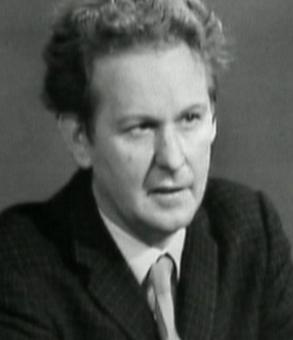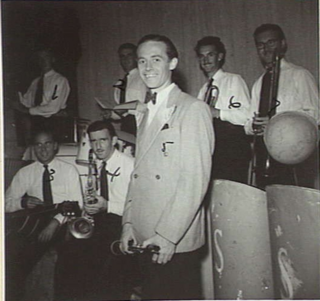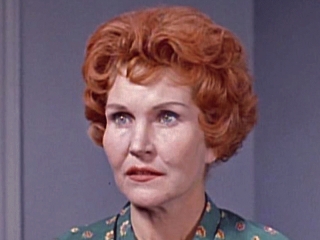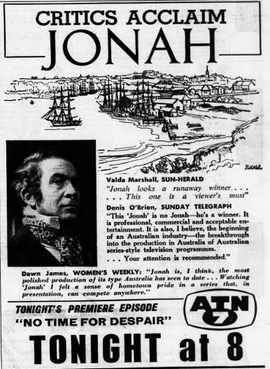Related Research Articles

Ronald Erle Grainer was an Australian composer who worked for most of his professional career in the United Kingdom. He is mostly remembered for his television and film score music, especially the theme music for Doctor Who, The Prisoner, Steptoe and Son and Tales of the Unexpected.
Universal Television LLC is an American television production company that is a subsidiary of Universal Studio Group, a division of NBCUniversal, which in turn, is a wholly owned subsidiary of Comcast. It serves as the network television production arm of NBC; a predecessor of the company previously assumed such functions, and a substantial portion of the company's shows air on the network. It was formerly known by various names, including Revue Studios, Universal Pictures Television Department, Universal-International Television, Studios USA Television LLC, Universal Studios Network Programming, Universal Network Television, Universal Domestic Television, NBC Universal Television Studio, and Universal Media Studios. Re-established in 2004, both NBC Studios and the original Universal Television are predecessors of the current Universal Television, formerly known as NBC Universal Television Studio and Universal Media Studios.
The Story of Peter Grey was an Australian television daytime soap opera produced by the Seven Network and first broadcast in July 1962. James Condon starred in the title role as a church minister.

Whiplash was a British/Australian television series in the Australian Western genre, produced by the Seven Network, ATV, and ITC Entertainment, and starring Peter Graves. Filmed in 1959-60, the series was first broadcast in the United Kingdom in September 1960, and in Australia in February 1961.
Ronald Grant Taylor was an English-Australian actor best known as the abrasive General Henderson in the Gerry Anderson science fiction series UFO and for his lead role in Forty Thousand Horsemen (1940).

Horace Andrew Dargie was an Australian musician, television compère, talent manager, music label founder and music arranger. As a member of Horrie Dargie Quintet he was awarded the first gold record in Australia for their 10-inch live album, Horrie Dargie Concert (1952), which sold 75,000 copies. In the late 1950s and early 1960s he compèred TV variety programmes Personally Yours (1959), BP Super Show (1959–1962) and The Delo and Daly Show (1963–1964). Dargie co-produced teen pop music programme, The Go!! Show (1964–1967), and as well as organising its on-screen performers he established the related Go!! Records label to provide an outlet for artists' singles. He was inducted into the ARIA Hall of Fame in 1996. Dargie was married twice.

Startime is an anthology show of drama, comedy, and variety, and was one of the first American television shows broadcast in color. The program was aired Tuesday nights in the United States on the NBC network in the 1959–60 season.

Jonah is an Australian television drama series which aired for 20 episodes starting from 15 October 1962 on the Seven Network. Produced during an era when commercial television in Australia produced few dramatic series, Jonah was a period drama, and was inspired by the success of ABC's period drama mini-series like Stormy Petrel.

Shell Presents was an early attempt at Australian television drama, being an umbrella title for several different productions. It debuted on 4 April 1959, and aired on ATN-7 and GTV-9, who split production of plays for the series between them. It was an anthology series, each program being a self-contained play for television. The series won a Logie award in 1960 for TV Highlight of 1959. As the title suggests, it was sponsored by Shell. It was described as "a very big deal for the station: major institutional sponsorship from international companies for locally produced drama." It would be followed by The General Motors Hour.
Hal Lashwood's Alabama Jubilee was an Australian television variety series hosted by Hal Lashwood which aired from 1958 to 1961 on ABC Television. It was essentially a minstrel show, with some of the performers appearing in blackface makeup. In 1960, it was retitled Hal Lashwood's Minstrels.

The Purple Jacaranda was an Australian television mini-series which aired on ABC in 1964 based on a novel by Nancy Graham. Cast included James Condon, Margo Lee, Ronald Morse, Diana Perryman, Walter Sullivan and John Unicomb.
Make Ours Music was an Australian music television series which aired from 1958 to circa 1961 on ABC. Produced in Sydney, it also aired in Melbourne. Originally a half-hour series, it later expanded to an hour. Make Ours Music featured a mix of live songs and dance numbers.
Women's World was an Australian television series which aired from 1956 to 1963 on ABC. Originally broadcast in Sydney and later Melbourne, it would appear the last couple years of the series were only broadcast in Sydney.
Telestory is an Australian television series which aired 1961–1962. Produced by Artransa Park and aired on ATN-7, it was a 15-minute series in which an actor would read from a book. The first season consisted of Leonard Teale reading The Sundowners, while the second season consisted of Gordon Glenwright reading from They're a Weird Mob. Very basic television, it aired towards the end of the day's schedule, at time slots such as 10:10PM on Monday and 11:35PM on Friday. Additional episodes were planned but do not seem to have been produced.
Curtain Call is an Australian variety series which aired in Sydney on ATN-7 during 1960, which featured comedy and music. It was followed-up in 1961 with the popular Revue '61.
Sing, Sing, Sing is an Australian music television series that aired from 1962 to 1965 on what would eventually become the Seven Network. Initially hosted by Lionel Long, most of the episodes were hosted by rock-and-roll singer Johnny O'Keefe. The series was produced in Sydney.
Junior Sports Magazine is an Australian television series which aired 1962 to 1965 on ABC Television. It was a sports news and instructional series aimed at young people. The weekly half-hour series was produced in Sydney and hosted by John O'Reilly.
Adventure Unlimited is a 1965 Australian anthology TV series. It was produced by Lee Robinson and associate produced by Joy Cavill. The directors included Ken Hannam. It was made by Waratah Film Productions a short lived company that came out of an unsuccessful attempt to gain a third commercial television licence.

"A Tongue of Silver" is an episode of the 1959 Australian TV drama anthology Shell Presents. Australian TV drama was relatively rare at the time. It starred John Meillon, who had been in Thunder of Silence in the same series.

Light Me a Lucifer is a 1962 Australian television comedy film which aired on ABC. Written by John O'Grady, it starred Frank Thring as the devil, along with Wyn Roberts, Edward Howell, Joan Harris, Ken Goodlet and Lynne Flanagan. It was produced in Melbourne.
References
- ↑ "Revue Actress In Startime". TV Guide. The Sydney Morning Herald . 4 March 1963. p. 4. Retrieved 19 September 2014.
- ↑ "Local Talent in New TV Venture". TV & Radio Guide. The Age . 20 September 1962. p. 1. Retrieved 19 September 2014.
- ↑ "Search results for startime". National Film and Sound Archive . Retrieved 27 December 2023.